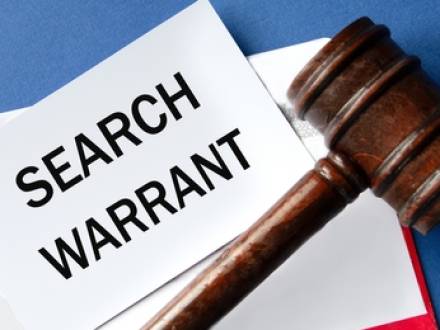Illinois Drug Search Warrants Built on Anonymous Phone Calls
 In their zeal to arrest those who are allegedly involved in the illegal drug business, police may sometimes skip a few steps and obtain a search warrant based solely on an anonymous tip. A neighbor may report "suspicious activity," or, in some cases, the anonymous tip is simply a way to "get back at" someone for a real or imagined slight.
In their zeal to arrest those who are allegedly involved in the illegal drug business, police may sometimes skip a few steps and obtain a search warrant based solely on an anonymous tip. A neighbor may report "suspicious activity," or, in some cases, the anonymous tip is simply a way to "get back at" someone for a real or imagined slight.
Officers may use these unverified calls to support a search warrant request in drug investigations; however, if there is no corroboration, the warrant may be invalid, and the evidence may be suppressible. Anonymous tips are among the weakest forms of probable cause and are heavily scrutinized in Illinois courts under the Aguilar-Spinelli/Gates totality-of-the-circumstances test.
If your drug arrest was based solely on a search warrant that considered an anonymous tip "probable cause," speaking to an experienced DuPage County, IL criminal defense attorney gives you a much better chance at a positive outcome. Drug charges in Illinois can carry severe penalties, so you need an attorney who will aggressively fight for your future.
Why Anonymous Tips are Inherently Unreliable
An anonymous tip means the caller’s identity is unknown, making it impossible to assess his or her credibility. There is no proven basis of knowledge; the caller may or may not have seen something incriminating. The caller could be biased, angry, or mistaken, which is why Illinois courts repeatedly warn that anonymous allegations require strong police corroboration. If a search is conducted based on an invalid warrant, it can be challenged in court, and the evidence found during the illegal search may be suppressed.
What Is the Aguilar-Spinelli/Gates Test?
The Aguilar-Spinelli test required two prongs for a warrant to be valid based on an informant’s tip: Basis of knowledge (how the informant obtained the information) and veracity/reliability (the informant’s credibility). This test was replaced by the more flexible Gates standard for determining probable cause.
The Aguilar-Spinelli/Gates test requires a "totality of the circumstances" approach. This means that a search warrant cannot be issued solely based on an anonymous tip. The tip must be corroborated by additional evidence gathered during a law enforcement investigation to establish probable cause for a warrant.
What Are the Requirements for an Illinois Search Warrant?
Typical anonymous tips (usually from neighbors) may include terms like "heavy foot traffic," "suspicious visitors," "loud noises," or "possible drug sales." Regardless of how solid the tip seems, a search warrant requires the following:
- A judge must find there is probable cause to believe a crime has been committed.
- The judge must also find that it is more likely than not that the evidence of the crime is in the place to be searched.
For an anonymous tip to be useful, the police must independently verify details provided in the tip. The more specific a tip is, the easier it will be to corroborate. A neighbor claiming "Jim is a drug dealer," simply because Jim has lots of visitors, is not enough to justify further investigation. Judges typically dislike warrant requests based on nothing more than neighborhood gossip and expect anonymous drug tips to be thoroughly investigated.
A more specific tip that provides the make, model, and license plate of a car that comes to Jim’s house every night at precisely 10 p.m., and only stays five minutes, might be specific enough to warrant further investigation. Even a very specific tip is only the starting point. The final warrant must be based on evidence gathered through a subsequent investigation that might include surveillance or a trash pull.
Contact a Naperville, IL Drug Crimes Lawyer
If your arrest was based on nothing more than an anonymous neighbor complaint, a DuPage County, IL criminal defense attorney from Appelman Law LLC can attack the tip’s credibility while highlighting law enforcement’s failure to corroborate. If the warrant falls, all resulting evidence may be suppressed. Attorney Appelman has a master’s degree in forensic psychology in addition to his law degree. Appelman Law LLC offers a proven track record and unwavering dedication at a time when you need it most. To schedule your free consultation, call 630-717-7801.





